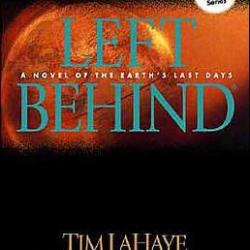"Among you stands one whom you do not know." Jesus stands in the garden as Judas brings his captors, and boldly identifies himself. "I am he" (18:6).
He hangs on the cross with an ironic inscription over it. Though used as a means of mockery, it actually made known Jesus' true identity (19:19).
Jesus stands next to Mary in the garden: ". . . she turned around and saw Jesus standing there, but she did not know that it was Jesus." She recognizes him when he calls her name. Her response is to tell the disciples "I have seen the Lord!" (20:18)
Jesus stands in the midst of shocked disciples in a locked room in chapter 20.
He stands on the beach just after daybreak offering advice to his disciples on how to catch a bumper crop of fish in chapter 21.
So many times in the Gospel of John we see examples of the fact that "Among us stands one whom we do not know." That one offers new birth, healing, forgiveness, living water, new life, spiritual sight, a way to God, and a way out of the prison of our unbelief into resurrection faith.
John's purpose in writing this gospel is that we may believe in Jesus and, believing, have life in his name. "Whoever believes in me believes not in me but in him who sent me. And whoever sees me sees him who sent me." (13:44)
As daily Christians who aren't saving up demonstrations of our faith for special occasions, our role is not unlike that of John the Baptist. We are to point people to the truth, the fact, the reality, that "Among us stands one whom we do not know."
The fact that we do not know him is no fault of his. He is here. He is seeking to make himself known. He is accessible and available. He wants us to recognize his presence and believe in him and the One who sent him.
Why do we fail to recognize him?
- Like Nicodemus, we may feel the risk is too high to follow Jesus.
- Like the woman at the well, our own sense of guilt and unworthiness may block our accepting his forgiveness and energizing new life.
- Like the man at the pool, we may have become comfortable in our pain, limitations, and complaints and lost our motivation to be changed.
- Like those who yearned to condemn and destroy the woman caught in adultery, we may be unwilling to forgive or be forgiven.
- Like Mary in the garden, we may be so caught up in our grief that we see only the grave and not the savior.
- Like the disciples locked in a room for fear of their enemies, we may be so mired in fear that we cannot raise our eyes to faith.
At this Advent season we may be one or more of these people. We may know others who mirror their struggles. At this Advent season, for them and for us, we do well to remember John the Baptist's encouraging, challenging words:
"Among you stands one whom you do not know."





